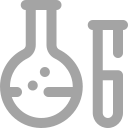
Product Description
Nivolumab (anti-PD-1) is a genetically engineered, fully human immunoglobulin (Ig) G4 monoclonal antibody directed against the negative immunoregulatory human cell surface receptor programmed death-1 (PD-1,PCD-1) with immune checkpoint inhibitory and antineoplastic activities.

Information
Research AreaCancer Research
IsotypeHuman IgG4
TargetPD-1/PD-L1 interaction
PD-1/PD-L2 interaction

Specifications
Storage BufferPBS buffer, pH 7.2
Concentration5mg/ml
SourceCHO cells
Purity / Grade99.5%
Endotoxin Level≤1 EU/mg

Misc Information
Storage InstructionStore at -80°C and avoid freeze-thaw cycles
Alternative NamesBMS-936558, ONO-4538, MDX-1106
Observed Molecular Weight143.597 KDa
NotesInVitro: Nivolumab (anti-human PD-1) binds PD-1 with high affinity (KD 2.6 nmol/l by Scatchard analysis to polyclonally activated human T cells) and blocks its interactions with both B7-H1 and B7-DC. It effectively inhibits the interaction between PD-1 and its ligands. In vitro assays demonstrated the ability of nivolumab to potently enhance T-cell responses and cytokine production in the mixed lymphocyte reaction and superantigen or cytomegalovirus stimulation assays. Nivolumab inhibits the interaction between PD-1 and its ligands, PD-L1 and PD-L2, with IC50 values of 2.52 and 2.59 nmol/L, respectively, as shown by surface plasmon resonance. In a study using FACS to evaluate ligand binding to PD-1 expressed on CHO cells, the IC50 values for nivolumab-mediated inhibition of PD-1 binding to PD-L1 or PD-L2 were similar (1.04 and 0.97 nmol/L, respectively). Nivolumab binds specifically to PD-1 and not to other immunoglobulin superfamily proteins, such as CD28, CTLA-4, ICOS, and BTLA. Nivolumab can, at very low concentrations (∼1.5 ng/mL), enhance T-cell reactivity in the presence of a T-cell receptor stimulus. However, nivolumab had no stimulatory effect in the absence of antigen or T-cell receptor stimulus. Specifically, there was no significant release of inflammatory cytokines, including IFNγ, TNFα, IL-2, IL-4, IL-6, or IL-10, from unstimulated whole blood after coincubation with nivolumab. Nivolumab does not cause nonspecific lymphocyte activation.
In Vivo: Nivolumab (anti-human PD-1) is well tolerated, dose-limiting toxicities (DLTs) were not reached and the maximum tolerable dose (MTD) was not defined in patients with advanced stage solid tumors. The measured half-life of nivolumab was 12-20 days, the pharmacodynamic effects of PD-1 receptor occupancy was even more prolonged at 85 days, indicating the biological durability of this high-affinity mAb. In monkeys, serum nivolumab has a relatively slow clearance with limited extra vascular distribution, as demonstrated by a Vss value consistent with plasma volume. Mean apparent terminal elimination half-life estimates for males and females at 1 mg/kg were similar (124 and 139 hours, respectively), and the mean half-life estimate for males at 10 mg/kg was 261 hours. Although nivolumab seems to lack toxicity in monkeys, toxicities have been observed in human clinical trials. In a phase I trial, nivolumab had a favorable safety profile. Adverse events were generally similar to those observed with ipilimumab, although with lower incidence and of less severity, and comprised gastrointestinal, endocrine, and skin toxicities, and pulmonary inflammation. Interestingly, pneumonitis has been observed in PD-1-deficient mice bred onto the MRL genetic background, but not in PD-1-deficient mice with other genetic backgrounds.